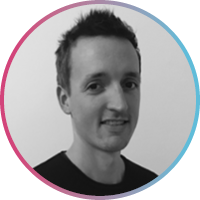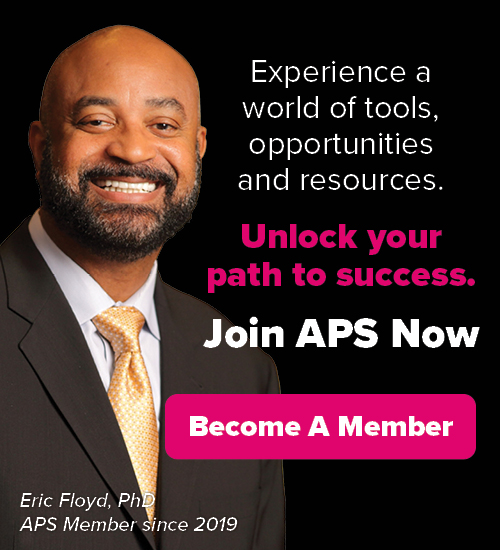- Membership & Community
-
Publications & News
- Physiology Journals
-
Newsroom
-
The Physiologist Magazine
- 2019
- 2020
- 2021
- 2022
- 2023
- 2024
-
In Depth
- In Depth—The Bear Necessities
- In Depth: Understanding Circadian Rhythms
- In Depth: Understanding Data
- In Depth: Exercise Physiology: Take Your Medicine at the Gym
- In Depth: Neurodegenerative Disorders
- Imaging Methods Unveil the Invisible
- Rewiring the Brain: Breakthroughs in Neural Therapy
- What’s Coming Next for GLP-1 and Metabolic Disease Treatment
-
Mentoring Forum
- Net Worth
- Take Care
- You … In Charge
- Work. It. Out.
- Working Off-site
- Location, Location, Location?
- Student Support
- Progressing to Postdoc
- Relationship Building
- Let’s Get It Started
- What Do We Value?
- It’s a Postdoc Life
- Coronavirus Contributions
- Creative Communications
- Selection Process
- Conference Connections
- Postdoc Appreciation
- Research Rewards
- Focus on Teaching
- Industry Insights
- Balance Beam
- Post Postdoc
- If You Build It
- Talk It Through
- Forward Bound
- I’ve Earned My PhD. Now What?
- University Life
- Tips for Trainees
- Time Travel
- Prepare Now for the Career You Want
- Landing a Postdoctoral Researcher Position
- Becoming a Physician-Scientist
- Mastering the Art of Science Communication
- Setting Yourself Up for Success in the Lab
- From Postdoc to Professor: Key Strategies for Success
- How to Stay Motivated in Challenging Times
-
Policy IQ
- Policy IQ—2023 in Review: How APS Advocated on Behalf of Physiologists
- Policy IQ—Supporting Equitable Research
- NIH's Road Map to a Better Postdoc Experience
- The Career Path to Science Advocacy
- Culture of Safety: Stopping Sexual Misconduct
- Physiologists Return to Capitol Hill
- Tips for Scientists to Communicate about Animal Research
- Science Advocacy in a New Political Landscape
- Tips for Making the Call to Congress
-
Publish with Polish
- Publish with Polish
- The Layers of Open Science
- Take Your Content From Meeting to Manuscript
- APS Journals to Highlight Women’s Health Research
- What Subscribe to Open Means for APS Members
- The 5 Pillars of Publish with Purpose
- 3 Types of Metadata Researchers Should Know About
- Navigating Open Access and New Licensing Options
- Journal Manuscript Prep Made Easy
- Under the Microscope
- Mentoring Q&A
- Evolution
- Baseline by Scott Steen, CAE, FASAE
- 2025
- Find Us on Social Media
-
The Physiologist Magazine
-
Professional Development
-
Meetings & Events
-
American Physiology Summit
- #APS2024 Overview
- Abstracts
- Awards at the Summit
- Award Lectures
- Career Networking Lunch Form
- Dates and Deadlines
- Advocate for Health Research Funding
- Hotel Information
- Information for International Travelers
- Industry Partners
- Keynote Speaker—James Rothman, PhD
- Keynote Speaker—George Brooks, PhD, FAPS
- Keynote Speaker—Holly Ingraham, PhD
- Mobile App
- NIH and NSF Program Officer Panel Discussion Form
- Physical Poster Information
- PhysioHub
- Pre-Summit Events
- Registration
- Section & Group Banquet Tickets
- Social Events
- Speaker Audiovisual Instructions
- Summit FAQs
- Summit Newsroom
- Travel & Transportation
- Undergraduate Program Book
- Liability Waiver
- Industry Partners
- Martin Frank Diversity Travel Award Orientation Agenda
- Martin Frank Diversity Travel Award Networking Luncheon Agenda
- Women in Physiology Networking Event Agenda
- 2026 American Physiology Summit
- Joseph Erlanger: Pioneering Nerve Research and APS Leadership
-
2023
- APS 2023 Call for Proposals
- Shocklogic Test
- Team 2023 Task Force
- Shaping the Summit
- Schedule at a Glance
- Pre-Summit Events
- Pre-Summit Center for Physiology Education Workshop Registration
- Section & Groups Banquet Tickets
- Pre-Summit Center for Physiology Education Workshop
- Press Registration
- Meet the Organizers
- Keynote Speaker—Terrie Williams, PhD
- Keynote Speaker—David Julius, PhD
- Industry Workshop Information
- Important Dates and Deadlines
- Hotel Information
- Distinguished Lecturers
- Building APS 2023
- Awards at the Summit
- American Physiology Summit Program
- 2024
- Scientific Integrity Policy
- From Concept to Classroom
- New Trends in Sex Differences and Women’s Health Research
- Control of Renal Function in Health and Disease 2026
- Comparative Physiology Conference 2026
- Webinars
- Related Meetings
- Future APS Conferences
- Conference Policies
-
American Physiology Summit
- APS Awards
-
Career & Professional Development
-
Career Gateway
-
Resources
- Transcript—Leading Through Conflict and Difficult Conversations
- Transcript—Managing Conflict with Colleagues
- Transcript—Leading a Team Through Conflict
- Transcript—Providing Difficult Feedback
- Transcript—Team Dynamics and Culture Primer
- Transcript—Building a Team
- Transcript—Leading a Team Assigned to You
- Transcript—Creating a Team Culture
-
Resources
- Career Navigator
- Center for Physiology Education
- Virtual Courses
- Physiology Job Board
- APS Graduate Physiology & Biomedical Science Catalog
-
Career Gateway
-
Meetings & Events
-
Advocacy & Resources
- Policy Areas
-
Resources
- Researcher Resources
- Educator Resources
- Trainee Resources
- Student Resources
-
APS Graduate Physiology & Biomedical Science Catalog
- Des Moines University
- George Washington University
- Mayo Clinic Graduate School of Biomedical Sciences—Biomedical Engineering & Physiology
- Michigan State University
- New York Medical College
- Nova Southeastern University
- Pennsylvania State University
- Texas A&M University
- Texas A&M University Medical Physiology
- Stony Brook University
- The University of Iowa
- University of Alabama at Birmingham
- University at Buffalo
- University of Colorado
- University of Michigan
- University of Minnesota
- University of Missouri-Biomedical Sciences
- University of Nebraska Medical Center
- University of Nevada, Reno
- University of South Carolina School of Medicine
- University of Tennessee Health Science Center (UTHSC)
- University of Texas Health Science Center
- Virginia Commonwealth University
- Wayne State University
- Physiology Department Catalog Submission Form
- Boston University
- Women's Health Research Initiative
- Career Gateway
- Diversity, Equity & Inclusion
- Advocate for Science
- About APS
- Nonmembers
- $0.00
- Members
- $0.00
October 8, 2024
11 a.m. EDT
This panel discussion, hosted in collaboration with the Partnership for Clean Competition, will provide physiologists with perspectives from leaders in anti-doping science on career opportunities in the anti-doping industry. Topics will include a review of the professional landscape, experiences unique to performance enhancing drug research and comparing research at regulatory organizations versus academia. Panelists will also discuss professional and personal considerations and key attributes necessary for early-career and established scientists to build a career in the anti-doping industry. The Partnership for Clean Competition is a leading anti-doping research collaborative with the mission to protect the integrity of sport and public health by engaging and supporting the world’s top scientists and innovators in anti-doping research.
Speakers
 Laura Lewis, PhD
Laura Lewis, PhD
U.S. Anti-Doping Agency - Director of Science
Laura Lewis, PhD, director of science at the U.S. Anti-Doping Agency, examining in the role of hemoglobin mass on cycling performance for her sports-based doctoral program. After receiving her PhD, she continued to work as an applied sports scientist with Australia’s aspiring Olympians from a range of sports including water polo, soccer and track and field. Lewis combines her research interests of altitude and anti-doping in 2014 during a challenging project at the Tour of Qinghai Lake in northern China. She worked as a research fellow at the Australian Institute of Sport and Australian Catholic University and was awarded a Partnership for Clean Competition grant in 2015 to study the combined effects of altitude and iron supplementation on the Athlete Biological Passport.
 Geoff Miller, PhD
Geoff Miller, PhD
Assistant Laboratory Director - Sports Medicine Research and Testing Laboratory
Geoff Miller, PhD, is director of the Athlete Passport Management Unit at the Sports Medicine Research and Testing Laboratory (SMRTL) in Salt Lake City. He completed undergraduate training in biochemistry at Wartburg College in Iowa and earned a PhD in pharmaceutics and pharmaceutical chemistry from the University of Utah. Miller oversees routine sample analysis for biologics and the research department. Along with SMRTL, he works with the Partnership for Clean Competition on their performance hematology working group and with the World Anti-Doping Agency on their erythropoietin expert group and plasma volume working group.
 Jacob Bejder, PhD
Jacob Bejder, PhD
Assistant Professor - University of Copenhagen
Jacob Bejder, PhD, is an assistant professor at the Department of Nutrition, Exercise, and Sports at the University of Copenhagen in Denmark. He earned a bachelor's degree in sport and health, followed by a master's in human physiology. He then pursued a PhD at the University of Copenhagen, specializing in the detection and physiological effects of blood volume manipulation. Bejder’s research focuses on understanding individual physiological responses to doping agents and methods, discovering biomarkers and developing novel and highly specific detection strategies. He investigates confounding factors that impact these physiological responses, such as hydration status, exercise and environmental exposures such as altitude.
Sponsored by



